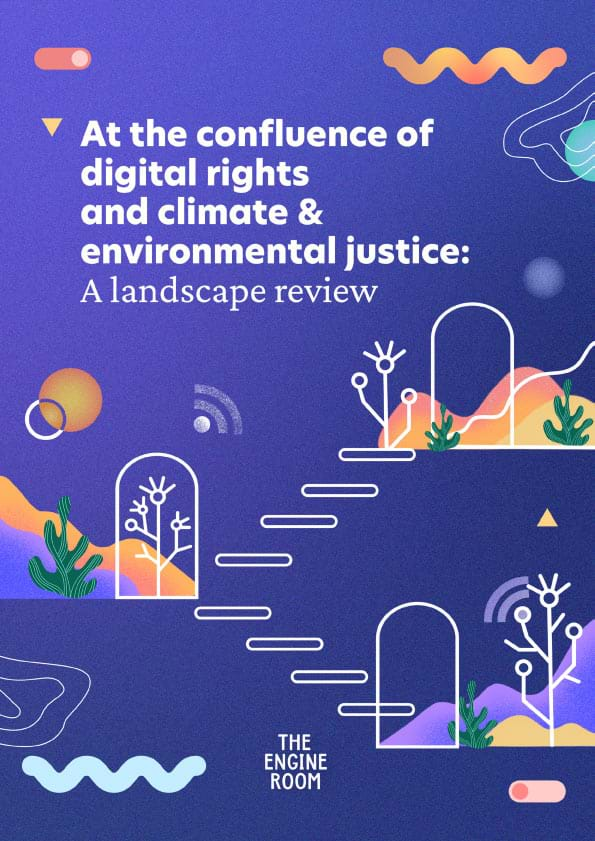When the dust settles: the AI Action summit
AI Action Summit was a whirlwind. It took some time to processing and digest this summit. Here is a summary of things …
reflection
Published on
reflection - research
Authors: Michael Brennan
First published on Ford Foundation
We are living in a climate crisis: the science is clear, and we need to rapidly change to a more just and sustainable society. This includes investing in a sustainable internet, which is currently the world’s largest coal-powered machine. More than building sustainable internet infrastructure, we also need to examine how and where the internet aligns with the movements for climate and environmental justice—and where it works against them.
Often considered separately, the environment and the internet share much in common; both are global in scope, linked to the exercise and erosion of human rights, and require international cooperation and coordination for their successful continuance. The repercussions of one can also extend to the other: from water rights disputes between data centers and local residents, to rampant greenwashing misinformation by fossil fuel companies, the internet’s ecological consequences are just some of the many complex problems at the intersection of climate justice and technology.
Despite this nexus between the internet and environment, we are only in the early stages of integrating philanthropic funding strategies across these intersections. Through a series of reports supported by Ford Foundation, Mozilla Foundation, and Ariadne, we are pleased to share research on the implications and intersections of climate justice for digital rights. While the primary audience for the research is digital rights funders or adjacent technology funders, we believe the work can be useful for other funders and organizations working across issues, given that the climate crisis and technology touch other fields related to human rights, from migration to land tenure and indigenous rights.
We come to this topic humbly, knowing that many practitioners have been thinking critically about these issues for a long time. We offer the following research as a starting place for digital rights funders who want to begin untangling climate implications for their work. Below you’ll find a series of eight different research pieces produced by four different organizations, each with their own networks and perspectives.
The Engine Room, a group whose mission is to support civil society organizations in using technology and data in strategic, effective and responsible ways, authored a landscape report, At the confluence of digital rights and climate & environmental justice, which provides an accessible and thoughtful overview on the climate and environmental justice issues that emerge from technological innovation. They provide an analysis of the environmental toll of digital infrastructures and information on climate disinformation, open data and climate monitoring, increased surveillance of environmental activists and land defenders, and migration justice. In addition, the report explores overlapping themes and challenges that can prevent the climate and digital rights movements from working together. Finally, it offers recommendations to digital rights funders on how to center the intersections of climate justice and technology in their work.

Next to the landscape analysis we supported seven issue briefs, each of which offer a deep dive into specific topics at the intersection of digital rights and climate justice such as governance, misinformation, open data, and extractivism. The goal of these issue briefs is to provide organizations who have been working on these topics to share their expertise and experience with the digital rights funders community.
Landscape Report The Engine Room, At the confluence of digital rights and climate & environmental justice
Issue Briefs
AI Action Summit was a whirlwind. It took some time to processing and digest this summit. Here is a summary of things …
reflection
These days I have the feeling that I am caught in a digital flood of information. Each week brings new doomsday …
reflection
First published on Philea The science is clear: We are living in a climate crisis. We need to rapidly change to a more …
reflection research